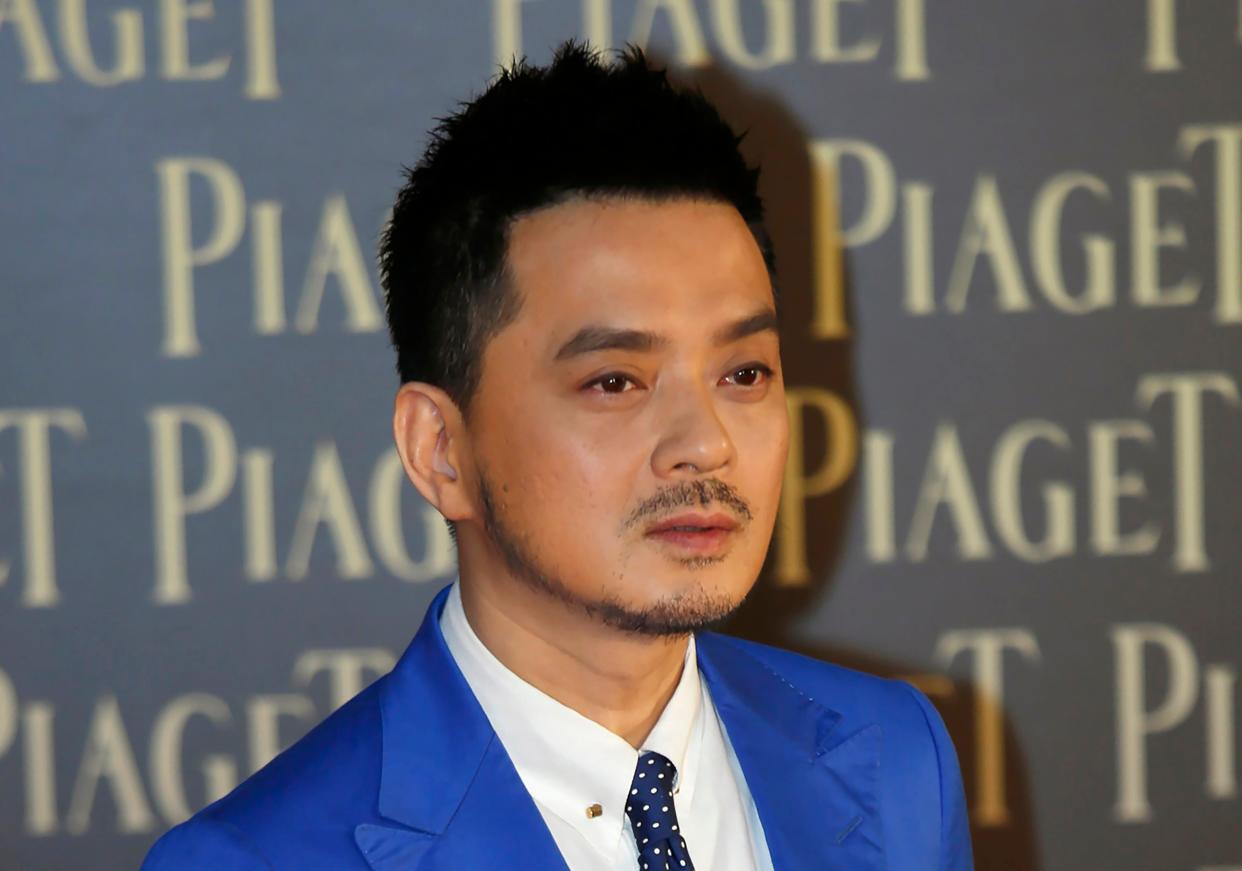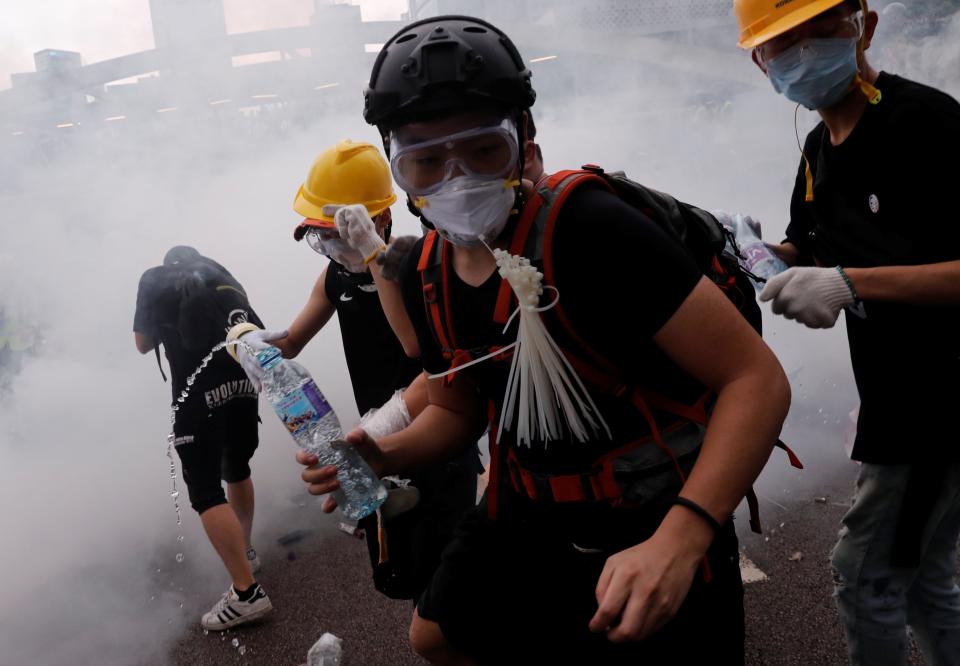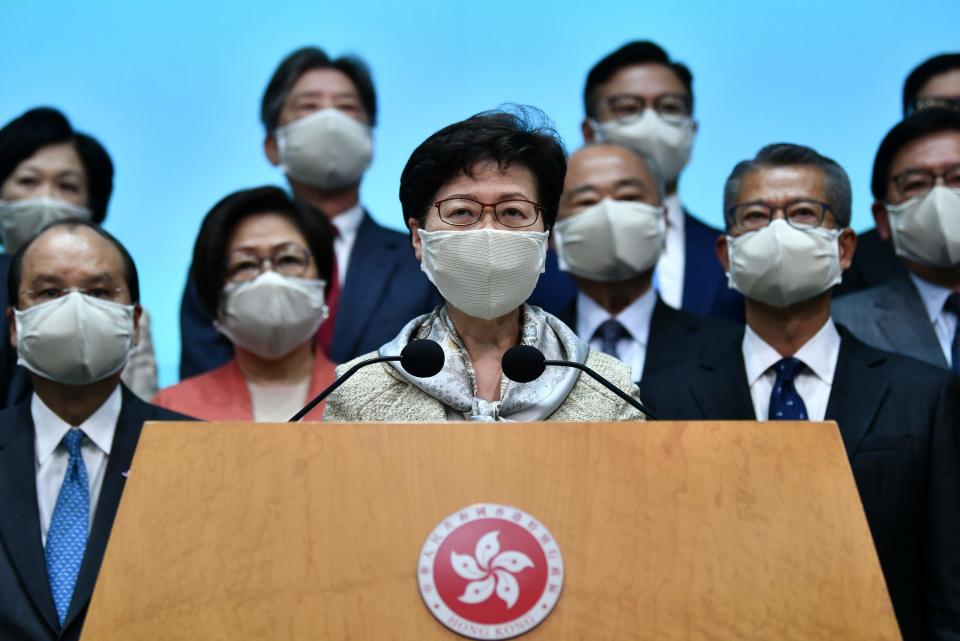By arresting singer, China is crushing any glimpse of opposition ahead of Hong Kong elections

China’s authorities are poised to crush all signs of opposition ahead of two decisive elections in Hong Kong: the Legislative Council and the city’s ruler. And with anxiety against political surprises on the rise in Beijing, pro-democracy activists, artists and journalists seem to have completely lost the ability to speak up.
On Monday, police arrested singer and opposition supporter Anthony Wong. The charges, mounted against Wong by the Independent Commission Against Corruption in Hong Kong, indicated he had used “entertainment to induce others to vote” for pro-democracy Lawmaker Au Nok’s in the 2018-byelection by singing two songs on stage at a rally and calling on attendees to vote for Nok.
Wong, 59, is a popular singer and activist who rose to prominence in the 1980s for his performance with the pop duo Tat Ming Pair before breaking away to lead a solo career. He is also a staunch defender of LGBTQ+ rights in Hong Kong.
Wong was a prominent supporter of the 2014 umbrella revolution protests, and as a result, his songs were banned from mainland China and removed from streaming sites.
“Mr Wong is a well-established singer for a couple of decades, so he probably felt he could afford to be denied access to the China market for his activism. But he probably did not expect the authorities in HK to charge him with a criminal offence,” Steve Tsang, Director of the China Institute at SOAS University in London, said.
Wong was released on bail later on Monday. Since he was not charged under the new and controversial National Security Law (NSL), it remains unclear whether the court will indict him in the end.

Au, who was charged with Wong, is already in jail over NSL charges for participating in the 2019 elections primary, following the massive pro-democracy protests that rocked the city and rattled Beijing months earlier.
Last summer, the authorities introduced the NSL to quash secession, subversion, foreign collusion, and terrorism. But in reality, experts say China’s aim behind the NSL is to extinguish any glimpse of democracy in a city that was once the crown jewel of freedom and open markets in East Asia.
“This is clearly a political trial as the authority is twisting the definition of entertainment, prohibiting any campaigning effort by the pro-democracy camp in Hong Kong,” Finn Lau, a UK-based Hong Kong activist and founder of the Hong Kong Liberty and Fight For Freedom advocacy groups, told The Independent.
This is clearly a political trial as the authority is twisting the definition of entertainment, prohibiting any campaigning effort by the pro-democracy camp
Finn Lau, UK-based Hong Kong activist
Last week, activist Tong Ying-kit was the first to be charged and convicted under the NSL after he had been given nine years in person for crashing his motorcycle into a group of police officers and carrying the slogan, “Liberate Hong Kong, revolution of our times.”
The trial lasted for two weeks, and the defendant was denied the right to trial by jury – a legal practice used in Hong Kong’s common law system for 176 years. Amnesty International called the trial the “beginning of the end for freedom of expression” in Hong Kong.
The trial, and Wong’s arrest, mark an incremental but fast-paced campaign by the city’s authorities to crush any unwanted signs of opposition before two pivotal elections that critics say will likely put an end to Hong Kong’s autonomous status.
“It is no doubt that China wants to securitise Hong Kong in as many aspects as she can to prevent any unexpected events before HK’s two new elections later this year,” said Eric Lai, the Hong Kong law fellow at Georgetown University and a co-author of two recent reports by the Georgetown Center for Asian Law examining the NSL.
The vote for Hong Kong’s mini-parliament, the Legislative Council, also known as LegCo, is set for 19 December. The chief executive, the city’s de facto ruler, will be elected on 27 March next year.

In March, China announced major changes to the electoral system that reduced the number of directly elected representatives and increased the number of Beijing-approved officials in an expanded legislature. A powerful new vetting committee was set to monitor candidates for public office and work with new national security authorities in Hong Kong to ensure they are loyal to Beijing.
The current ruler Carrie Lam later announced more measures to support candidates Beijing calls “patriots” of Hong Kong. This included redrawing constituency boundaries, creating more electoral districts, and criminalising calls for voters to leave ballots blank. This marked the biggest political reshuffle since the UK had handed Hong Kong over to China in 1997, under the Sino-British Joint Declaration.
The committee will select the chief executive and 40 of the council’s 90 seats.
Since introducing the changes to the election rules, Beijing has moved to crush pro-democracy political movements, change university curriculums to serve China Communist Party’s agenda, strip the judicial system from its long-standing independence and silence critical journalists and news organisations.
“China is targeting more and more citizens in Hong Kong, not just activists. For example, the authority arrested people who published children’s picture books about sheep one week ago; and then they arrested a pro-democracy singer today,” Mr Lau said.
In June, the city’s authorities shut down the outspoken, pro-democracy Apple Daily newspaper ahead of the national celebrations of the Communist Party’s centenary that were held on 1 July. This was seen as a show of force by Beijing and a symbolic, preemptive move to draw a red line for what is remaining of Hong Kong’s free media.
Ironically, Apple Daily was referenced in Wong’s popular song “A Forbidden Fruit A Day” during Au’s rally in 2018, creating an aggravating moment for Beijing where pop culture threw its weight behind democratic politics and media.
A video showed Wong telling his fans before singing: “This song is about choice, whether society has a choice.”
In stark contrast to Wong’s message to his audience, President Xi Jinping encouraged authorities in Hong Kong to step up crackdown measures in his 100-anniversary remarkable speech last month. “We must implement the legal systems and enforcement mechanisms to safeguard national security,” he said.
China is targeting more and more citizens in Hong Kong, not just activists
Finn Lau, UK-based Hong Kong activist
“There is no doubt that Xi changed China’s approach to Hong Kong from grudging tolerance to one that requires all Hong Kong citizens to transform themselves into ‘patriotic Chinese’ who support the Communist Party and Xi’s leadership in HK as well as in the PRC as a whole,” Professor Tsang told The Independent.
Now, China’s authorities are moving to make an example of opposition artists and tame popular culture to serve the interests of the CCP.
“This is clearly meant to use Mr Wong to set an example to others, artists and performers in particular so that they think twice before using their celebrity status to support pro-democracy activism in Hong Kong,” Professor Tsang noted.
“The arrests will create a strong chilling effect imposed on the arts and cultural industry, when artists, cultural workers and professionals will be less motivated to show support for pro-democracy activities and future election campaigns,” Mr Lai said.
Read More
Kris Wu: Chinese pop star detained in Beijing over rape allegations
China is using 13-storey ‘hog hotels’ to keep pigs safe from disease
China’s recent actions on Taiwan do not suggest imminent military threat, experts say
Xi Jinping make a rare visit to Tibet, first as president
Baby rescued from China floods as deadly torrential rains continue

 Yahoo News
Yahoo News 
